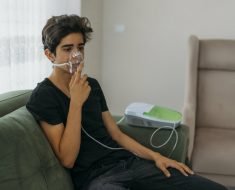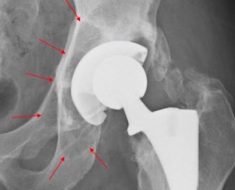Dr. Guillaume Canaud at the Necker-Enfants Malades Hospital and his team recently demonstrated the efficacy of a specific inhibitor called BYL719 in a cohort of 19 patients suffering from congenital lipomatous overgrowth-vascular malformation-epidermal nevi-spinal anomaly syndrome (CLOVES) and similar disorders. This medication is currently undergoing therapeutic oncology trials (phase I/II). No significant side effects have been observed 18 months after commencement of treatment. This study, published in the journal Nature, is an example of precision medicine and demonstrates the major benefits of this therapeutic strategy for these patients, who show significantly improved health and quality of life.
Patients suffering from CLOVES or similar disorders have major deformities and vascular masses due to mutations of a gene called PIK3CA. This gene regulates cell proliferation and growth. When overactivated, it causes the excessive growth of those parts of the body affected by the mutation. Accordingly, patients present with symptoms that vary greatly depending on the number of tissues affected, which may range from isolated macrodactyly (enlarged fingers or toes) to very severe forms affecting the entire body, such as CLOVES.
The most serious forms involve the overgrowth of fatty tissue, vascular malformations, scoliosis, skeletal anomalies such as major bone enlargement and the deformity of organs such as the brain or kidneys. Until now, no curative treatment has been available for those patients for whom the syndrome is potentially life-threatening in the short to medium term, and for whom the only therapeutic options have been symptomatic treatments. In the most severe cases patients undergo embolization procedures or mutilating surgery. Finally, it is important to note that these syndromes are frequently associated with chronic pain and have major repercussions on a patient’s quality of life and social life.
The PIK3CA gene frequently mutates in several cancers (particularly breast and colon cancers) and is a therapeutic target for the pharmaceutical industry. PIK3CA mutations in cancers are the same as those found in patients suffering from CLOVES and similar disorders.
At the end of 2015, a 29-year-old patient with CLOVES was referred to Dr. Guillaume Canaud, a specialist of the PIK3CA pathway. This patient had a very advanced and life-threatening form of CLOVES for which no surgery or radiological embolization could be proposed. Dr. Guillaume Canaud then approached the Novartis laboratory working in the field of oncology on a specific inhibitor of the PIK3CA gene called BYL719. This medication is currently undergoing therapeutic oncology trials (phase I/II). In January 2016, having obtained the authorisation of the French National Agency for Medicines and Health Products Safety to use this experimental treatment, Dr. Canaud administered the treatment on this first patient. Very quickly, a positive effect was observed on all symptoms. In particular, a significant decrease was observed in the size of vascular masses and overgrowths from which the patient suffered and a major improvement was seen in his quality of life. Eighteen months later, this patient had experienced only one side effect, hyperglycemia, which was well controlled by diet.
At the same time, in order to better understand this disease and the mechanism of action of the medication, Dr. Canaud and his research team within the INEM-Inserm Unit U1151) created the first mouse (murine) model that recapitulates all the lesions observed in patients with CLOVES. The mice were treated with the medication BYL719, and a major and rapid improvement in their health was observed.
On the basis of these results, in June 2016, Dr. Canaud quickly gathered a working group composed of 10 medical and surgical specialisations to care for patients suffering from CLOVES or similar syndromes at the Necker—Enfants Malades Hospital—AP-HP. The idea behind the group was to provide better care for patients.
During the summer of 2016, a nine-year old girl received this experimental treatment. She presented a serious form of CLOVES with a life-threatening vascular mass for which no surgical intervention or embolization was possible,. Once again, BYL719 had a spectacular effect on all symptoms, deformities and the vascular mass. It is important to note that no side effects were observed in this first child, and that her growth was not affected during the 12 months of treatment.
In February 2017, on the basis of these results, Dr. Canaud and his group were authorized by the ANSM to administer the BYL719 to 17 additional patients (14 children and 3 adults, ages ranging from four to 50 years) followed at Necker hospital, who had life-threatening complications and/or were scheduled for debulking surgery.
Very quickly after treatment, the researchers observed a spectacular improvement in the general health of all patients. All patients had a rapid reduction in the size and volume of vascular tumours, reduction in the enlarged veins and abnormal limbs, improvement in skin appearance, and a decrease in fatigue. Moreover, an improvement in scoliosis was observed in all patients. Patients were accordingly able to return to physical activity, stop morphine-based treatment, and return to school and work. After six months of treatment, these 17 patients are well and have not undergone any surgical interventions. Minor side effects such as mouth ulcers were observed in three patients. These 19 patients continue to receive BYL719 daily.
Source: Read Full Article





